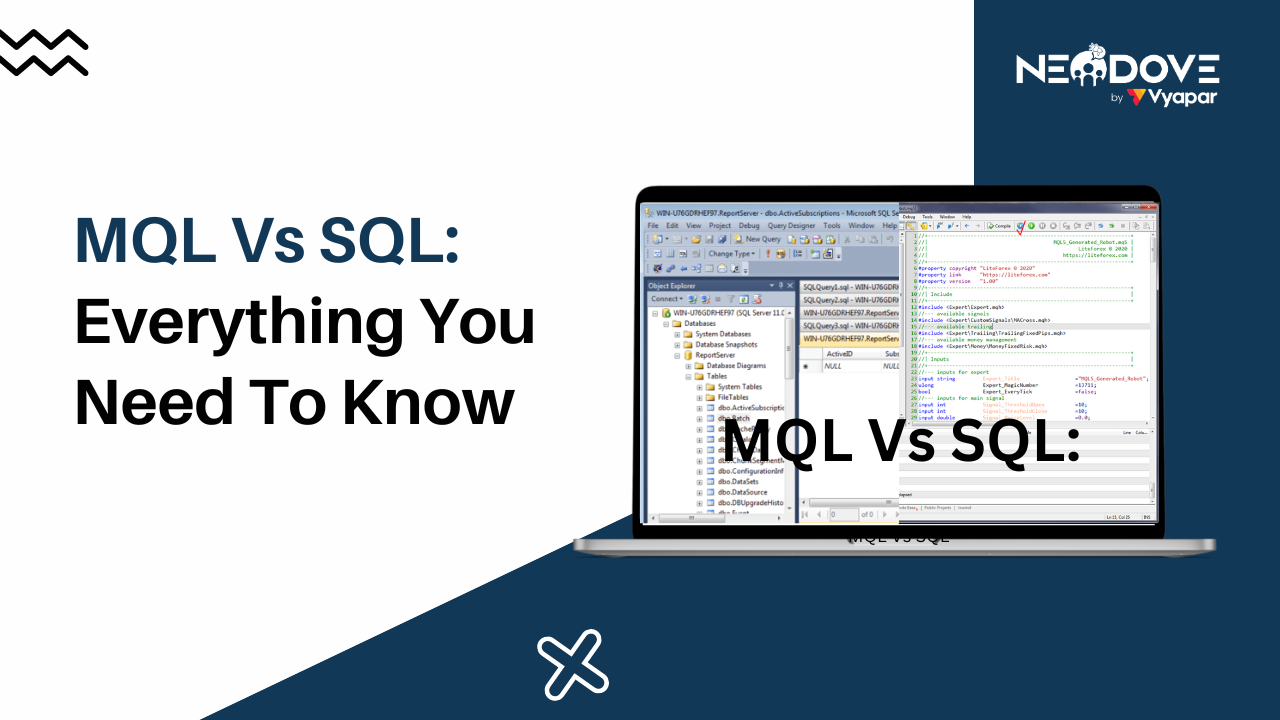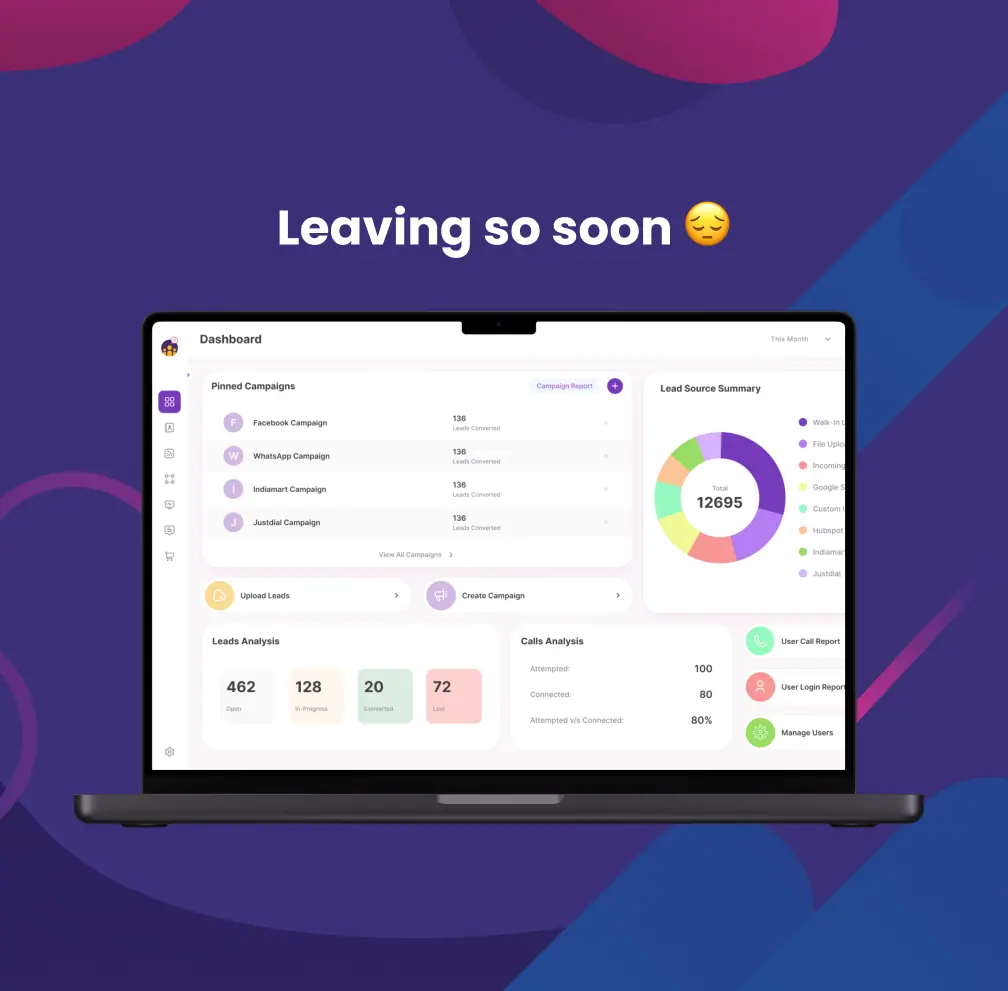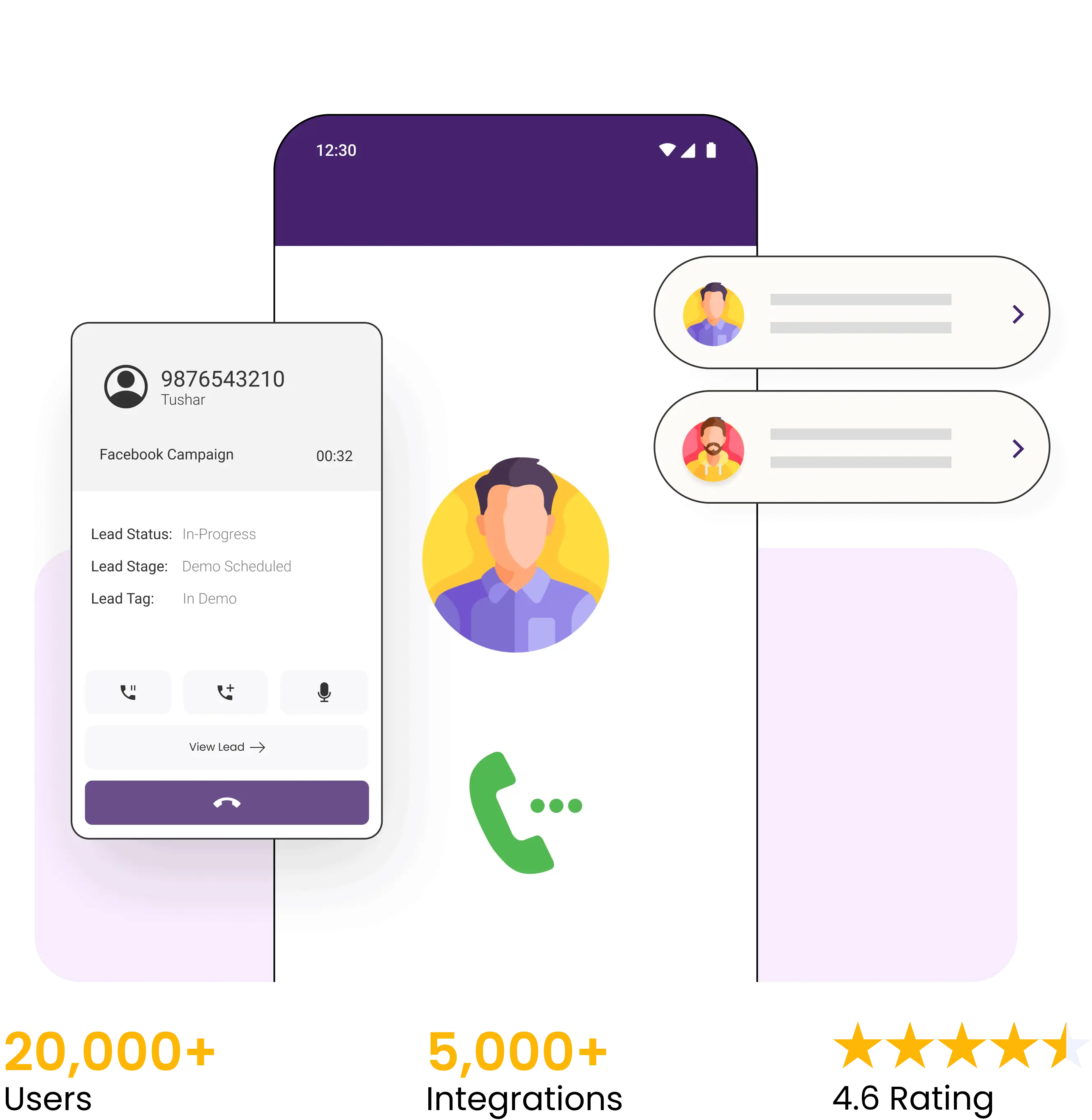FREE GUIDE
Get your copy of the ultimate guide to lead generation through telecalling (scripts included)

Table of Contents
ToggleMQLs are leads in the top stages of the buying funnel, while SQLs are leads ready to make a purchase and convert into customers.
Key Takeaways:
In marketing and sales, MQL vs SQL is a hot topic now. MQL & SQL – are two acronyms that pack a punch in marketing and sales. In short, an MQL is a prospect interested in what you’re selling, while an SQL is an MQL ready for the sales team’s personalised approach.
Understanding the difference between MQL and SQL is key for aligning marketing and sales. MQL in marketing filters leads more likely to convert based on their engagement. SQLs are top leads that have shown a real need for your solution, ready for a personalized sales approach. Mastering this distinction optimizes lead nurturing, and resource use, and drives better conversions.
In today’s guide, we will cover the:
1) Concept of SQL & MQL
2) Differences between them
3) Why differentiating them is important
4) How to convert an MQL into an SQL
And maybe more than that – let’s start.

A marketing qualified lead (MQL) is a prospect that has raised their hand, showing interest in your product or service. In the battle of MQL vs SQL, an MQL in marketing is the first crucial step – identified by your marketing team based on engagement with your content or social media campaigns. MQL in marketing acts as a filter, separating the casual browsers from those genuinely intrigued by what you offer.
An MQL (Marketing Qualified Lead) is a prospect showing genuine interest in your product, identified by marketing efforts, distinguishing them from casual browsers.





The SQL meaning is a lead that has gone beyond just marketing interest. While an MQL represents initial engagement, an SQL (or sales qualified lead meaning) is a prospect that has taken concrete actions signalling an intent to purchase. The SQL meaning is a lead that has actively engaged with sales materials like pricing guides or demo requests.
They have clearly raised their hand as being further along in their buyer’s journey than just an MQL. Understanding the SQL meaning allows sales teams to prioritize the hottest leads primed for that personalized one-on-one approach to convert them into customers.
Crux: An SQL (Sales Qualified Lead) is a prospect showing intent to purchase by engaging with sales materials, indicating they are further along in the buyer’s journey compared to an MQL.
Understanding the difference between an MQL and SQL is crucial for effective lead management. Let’s understand what sets these two types of leads apart and why recognizing this distinction matters.
In the battle of MQL vs SQL, a Marketing Qualified Lead (MQL) is at the top of the lead generation funnel. An MQL in marketing is identified based on initial interest. These leads have engaged with your marketing content, such as emails, ads, or downloads. They show curiosity and potential, but they are not yet ready to buy.
On the other hand, an SQL (Sales Qualified Lead) is further along in the buyer’s journey. An SQL has taken concrete actions indicating serious evaluation of your product or service. These actions might include requesting pricing details, booking a demo, or explicitly stating their need and intent to purchase.
The primary difference boils down to buyer readiness. MQLs are exploring and gathering information. SQLs are actively considering your product and are closer to making a decision.
Recognizing the distinction between MQL vs SQL allows marketing and sales managers to prioritize their efforts effectively. Marketing can focus on nurturing MQLs until they are ready to be handed off to sales. Sales can concentrate on SQLs who are primed for a personalized approach to convert them into customers.
By strategically differentiating the MQL vs SQL into your lead generation process, you can streamline your marketing and sales efforts, enhance efficiency, and ultimately drive more successful conversions.
Here are six reasons why differentiating both leads type is important:
Marketing teams can nurture MQLs with relevant content and engagement strategies to move them further along the funnel. Meanwhile, sales teams can concentrate on SQLs who are ready for direct, personalized interactions aimed at closing the deal.
Properly identifying and categorizing leads helps in allocating resources where they are most needed. Marketing resources can be used to generate and nurture leads until they become sales-ready, while sales resources can be deployed to engage with leads who are prepared to make purchasing decisions.

By understanding the stages of MQL in marketing and recognizing when a lead transitions to an SQL, your teams can ensure that leads receive the right type of attention at the right time. This tailored approach increases the chances of converting leads into customers.
Differentiating between MQL vs SQL helps in delivering a more personalized customer experience. MQL in marketing receive educational and informative content that addresses their initial questions and concerns, while SQLs get more specific, sales-focused information that aligns with their readiness to buy.
Knowing the difference between MQL and SQL aids in better sales forecasting and planning. Sales teams can predict potential revenue more accurately by focusing on SQLs who have demonstrated clear buying intent.
Clear differentiation fosters better alignment between marketing and sales teams. It establishes a common understanding and criteria for lead qualification, reducing friction and improving collaboration.
Transforming a lead from an MQL (Marketing Qualified Lead) to an SQL (Sales Qualified Lead) involves very strategic steps to nurture and qualify the lead.
Here are four smart, step-by-step strategies:
Here we will understand lead behavior and personalize our communication to increase engagement.
Now, let’s gradually educate and guide the lead with relevant content and clear CTAs.
And here you quantify lead readiness and gather detailed information to better qualify leads.
Finally, identify key buying signals and initiate personalized outreach to convert leads.

At last, successfully transitioning MQLs into SQLs relies on personalized communication and resource optimization. By prioritizing these strategies, businesses can maximize conversions and fuel long-term growth. This strategic approach not only enhances conversion rates but also fosters enduring growth, positioning companies for sustained success in an ever-evolving market landscape.




95% business who use NeoDove report 3x more profits!
Happy Customers
107k reviews

These outcomes and beyond can be yours.
Lead Leakage
Increase in call attempts
More Engagement



4.6 Rating
FREE GUIDE
Get your copy of the ultimate guide to lead generation through telecalling (scripts included)